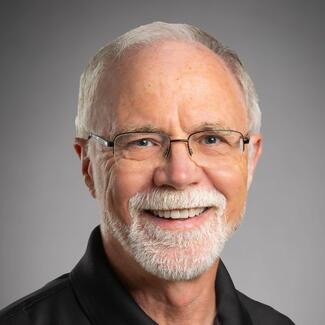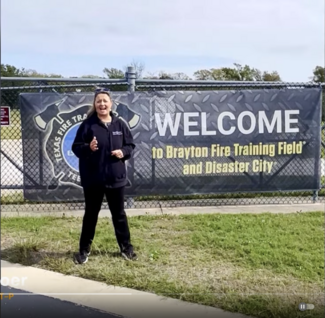Health workers in Frederick County bridge gap between community medical needs and services
Nov. 25--Hospital emergency rooms are intended for medical emergencies. But that's not always the case.
Sometimes, ER patients might be better served by alternative medical care: a primary care physician or a long-term care management plan.
Others might not need a doctor at all. They might just need a ride to the pharmacy to pick up medications or help navigating the process to sign up for health insurance.
Unsure what to do or where to do go, they end up in Frederick Memorial Hospital's Emergency Services department, where a long wait and expensive cost of treatment drain both the patient and the hospital.
That's where the community health worker comes in.
A dozen local residents -- the first graduates of the newly launched community health worker program -- will on Monday begin work with ER "frequent flyers," as they are known, through a partnership between FMH and the Asian American Center of Frederick.
The community health workers have received intensive training but are not licensed medical providers. They will help patients with chronic medical issues such as asthma and diabetes learn about, seek treatment for and manage their health conditions.
These preventative measures will in turn reduce the frequency these patients turn to FMH for emergency services.
Program details
Heather Kirby, the hospital's assistant vice president of integrated care delivery, described community health workers as the eyes and ears of the community, the "boots on the ground."
Their work will encompass everything from inspecting a patient's home living conditions for possible health hazards -- harsh chemical cleaners, poor air quality or other subtle environmental conditions that pose problems someone with asthma or Chronic Obstructive Pulmonary Disease (COPD) -- to helping manage medications, or even making sure there is transportation to see a doctor.
The health workers will also, when necessary, connect patients to medical professionals, either at FMH or through other resources, such as the Frederick County Health Department and Department of Aging, Kirby explained.
The hospital in 2012 began its Care Transitions program to help reduce the number of unnecessary emergency room visits. Already, the program has seen success.
The team of six people -- registered nurses, social workers, a pharmacist, a nurse practitioner and a coordinator -- served 2,994 patients in 2015 through home or community health intervention, according to the health department's 2016 Community Health Assessment.
The report stated that data on readmission and return visits to the hospital emergency room confirmed the program's effectiveness. Program patient satisfaction increased from 78 to 88 percent through the program, the report stated.
The community health workers -- 10 in total, although not all of them may have finished the necessary training to start Monday -- will help expand the program, both in number of people served and types of preventative services they can give, Kirby said.
As members of the communities they seek to serve, they also might provide something that licensed medical professionals cannot.
"We are experts more in the formal sense," she said of the hospital's Care Transitions team. "The other big benefit of a community health worker is that someone who lives in that community ... patients seem to be more comfortable with them, a little more open with them."
Bridging the gap
The idea of a community liaison between local residents and medical services was key to the Asian American Center's push to start a community heath worker program, Executive Director Elizabeth Chung said.
"Everyone really needs a cultural broker in these things," she said.
Mary Ieng, communications coordinator for the Asian American Center, agreed.
"The idea of this whole program is the emphasis on community ... face-to-face interactions, building that trust," she said. "We're the ones who know the community best."
Ethnic and racial minorities in particular might need guidance to find the appropriate medical services and care. In addition to language or other cultural barriers, shame might be a key reason why members of these groups don't have health insurance or other health services, according to Eran Bosaz, operations manager for the Asian American Center.
"They feel embarrassed, so they just avoid it," she said. "The community health worker can help them to feel less intimidated."
Even if the community health worker is not of the same race or ethnicity, the personal connection still can go a long way, she said.
Gracy Villacis, one of two health workers in training, is Ecuadorian, but has worked with Hispanic residents from all over Central and South America, as well as others.
"Those persons feel more confident with me helping, I think," she said.
Villacis was one of several health workers who helped organize a recent baby shower event at the Asian American Center. The educational event drew more than 50 local residents to the center's office off U.S. 40 in west Frederick to learn about proper prenatal care from Dr. Cynthia Macri, an obstetrician/gynecologist on the center's board of directors.
"It was awesome," Villacis said. "There were too many people with too many questions."
Health workers also will be responsible for following up with test results from the Asian American Center's annual Community Health Fair. The October event provided some sort of medical testing to 800 people, according to Chung. At least 80 of those tested were flagged for test results outside the normal range.
Looking forward
As the first graduates of the program begin their outreach in earnest, coordinators are looking to expand the program. Both the Asian American Center and the hospital are recruiting more potential trainees, Bosaz said.
They're also planning a new educator to teach the next round of classes. The Maryland Area Health Education Center West, in Cumberland, taught classes to the first batch of graduates.
Ashley Rose Bennett, one of those who graduated from training in the spring, is working toward a certificate in the National Community Health Worker Program, offered through Texas A & M University. Once she graduates in March, she will be qualified to teach classes for the next group of community health workers.
She has many ideas for how to improve instruction based on her experiences as a student in the classes this spring, she said. She named more experiential and hands-on learning as something she hoped to emphasize more as a future instructor.
She also will bring a direct understanding of Frederick's specific community health needs, something an outside instructor might not do as well, Bosaz said.
Kirby said she thought "training the trainers" was beneficial, especially as the program continues to grow.
The partnership between the Asian American Center and FMH will be reviewed after one year based on benchmarks for success, according to an agreement between the two organizations. But Kirby expressed confidence the partnership will extend beyond its first-year agreement.
"I fully expect this is a program that will continue to grow," she said. "I think it will have a tremendous impact."
Copyright 2016 - The Frederick News-Post, Md.
















